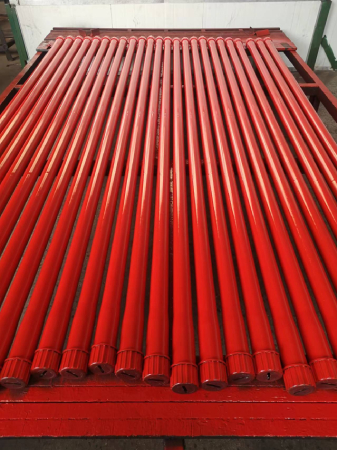- Afrikaans
- Albanian
- Amharic
- Arabic
- Armenian
- Azerbaijani
- Basque
- Belarusian
- Bengali
- Bosnian
- Bulgarian
- Catalan
- Cebuano
- Corsican
- Croatian
- Czech
- Danish
- Dutch
- English
- Esperanto
- Estonian
- Finnish
- French
- Frisian
- Galician
- Georgian
- German
- Greek
- Gujarati
- Haitian Creole
- hausa
- hawaiian
- Hebrew
- Hindi
- Miao
- Hungarian
- Icelandic
- igbo
- Indonesian
- irish
- Italian
- Japanese
- Javanese
- Kannada
- kazakh
- Khmer
- Rwandese
- Korean
- Kurdish
- Kyrgyz
- Lao
- Latin
- Latvian
- Lithuanian
- Luxembourgish
- Macedonian
- Malgashi
- Malay
- Malayalam
- Maltese
- Maori
- Marathi
- Mongolian
- Myanmar
- Nepali
- Norwegian
- Norwegian
- Occitan
- Pashto
- Persian
- Polish
- Portuguese
- Punjabi
- Romanian
- Russian
- Samoan
- Scottish Gaelic
- Serbian
- Sesotho
- Shona
- Sindhi
- Sinhala
- Slovak
- Slovenian
- Somali
- Spanish
- Sundanese
- Swahili
- Swedish
- Tagalog
- Tajik
- Tamil
- Tatar
- Telugu
- Thai
- Turkish
- Turkmen
- Ukrainian
- Urdu
- Uighur
- Uzbek
- Vietnamese
- Welsh
- Bantu
- Yiddish
- Yoruba
- Zulu
Understanding Teflon Coupling and Its Applications in Various Industries
Teflon Coupling The Unsung Hero of Modern Engineering
In a world where efficiency and reliability in machinery are paramount, materials that can withstand high levels of stress while offering exceptional performance have become essential. Among such materials, Teflon, or polytetrafluoroethylene (PTFE), has emerged as a champion. The versatility of Teflon is especially evident in a specific application known as Teflon coupling, which has found its way into various industries due to its unique properties.
What is Teflon Coupling?
Teflon coupling refers to a method of connecting two components within a system while employing Teflon to minimize friction, reduce wear, and prevent leaks. These couplings are typically used in situations where traditional materials might fail due to corrosion, thermal degradation, or inadequate sealing. Teflon’s ability to act as a non-stick barrier makes it an ideal choice for couplings in diverse applications, including chemical processing, food and beverage production, and even in aerospace engineering.
The Benefits of Teflon Coupling
1. Chemical Resistance One of Teflon’s standout characteristics is its resistance to a broad spectrum of chemicals. This trait is particularly advantageous in industries where corrosive substances are prevalent. Teflon couplings can withstand acids, alkalis, solvents, and other aggressive chemicals without degrading, meaning that equipment utilizing these couplings can maintain integrity under harsh conditions.
2. High-Temperature Stability Teflon has a remarkable thermal stability, withstanding temperatures as high as 260°C (500°F). This property allows it to be used effectively in high-temperature applications where other materials might become soft, warp, or melt. Such stability ensures that the couplings can maintain their performance over time, reducing the need for frequent maintenance or replacement.
3. Low Friction Teflon’s low friction coefficient is another significant advantage. When used in couplings, it helps minimize wear and tear between moving parts, leading to enhanced operational efficiency. This reduction in friction translates to longer equipment life and lower energy consumption, both of which are critical for businesses looking to optimize performance and reduce costs.
4. Non-reactivity The inert nature of Teflon means that it won’t react with other substances in the system. This quality is vital in applications where maintaining purity and preventing contamination are essential, such as in pharmaceutical manufacturing and food processing.
teflon coupling

5. Sealing Capabilities Teflon couplings also excel in sealing capabilities. They can effectively prevent leaks, a vital characteristic in systems where even small leaks can lead to significant issues, including downtime and safety hazards. Teflon's ability to create a tight seal ensures that processes are efficient and safe.
Applications of Teflon Coupling
Due to its unique properties, Teflon coupling is used in several high-demand fields
- Chemical Processing In industries dealing with harmful chemicals, Teflon couplings ensure that systems remain sealed and that machinery runs smoothly without contamination. - Pharmaceuticals In pharmaceutical production, where the purity of ingredients is paramount, Teflon couplings help maintain high standards of cleanliness and non-reactivity.
- Food Industry Food and beverage processing also benefits from Teflon couplings, as they prevent any undesired interactions between the machinery and the food products.
- Aerospace The aerospace industry utilizes Teflon couplings due to their lightweight and strong characteristics, contributing to the efficiency and safety of aircraft operations.
Conclusion
Teflon coupling, with its myriad benefits, plays an indispensable role in modern engineering and manufacturing sectors. Its unique properties—chemical resistance, high-temperature stability, low friction, non-reactivity, and outstanding sealing capabilities—make it an ideal choice in myriad applications. As industries continue to evolve and demand more from their materials, Teflon couplings will undoubtedly remain at the forefront of innovative engineering solutions, exemplifying how material science can lead to more efficient and reliable systems in our everyday lives.
-
Well Casing Extension Couplings – Applications and InstallationNewsJun.06,2025
-
Types of Crossover Subs in Drilling & CompletionNewsJun.06,2025
-
Key Features of High-Quality Tubing Pup JointsNewsJun.06,2025
-
Installation and Maintenance Tips for Steel Couplings for PipeNewsJun.06,2025
-
How to Select the Right Pup Joint for Oil & Gas OperationsNewsJun.06,2025
-
Applications of Stainless Steel Pipe CouplingsNewsJun.06,2025







